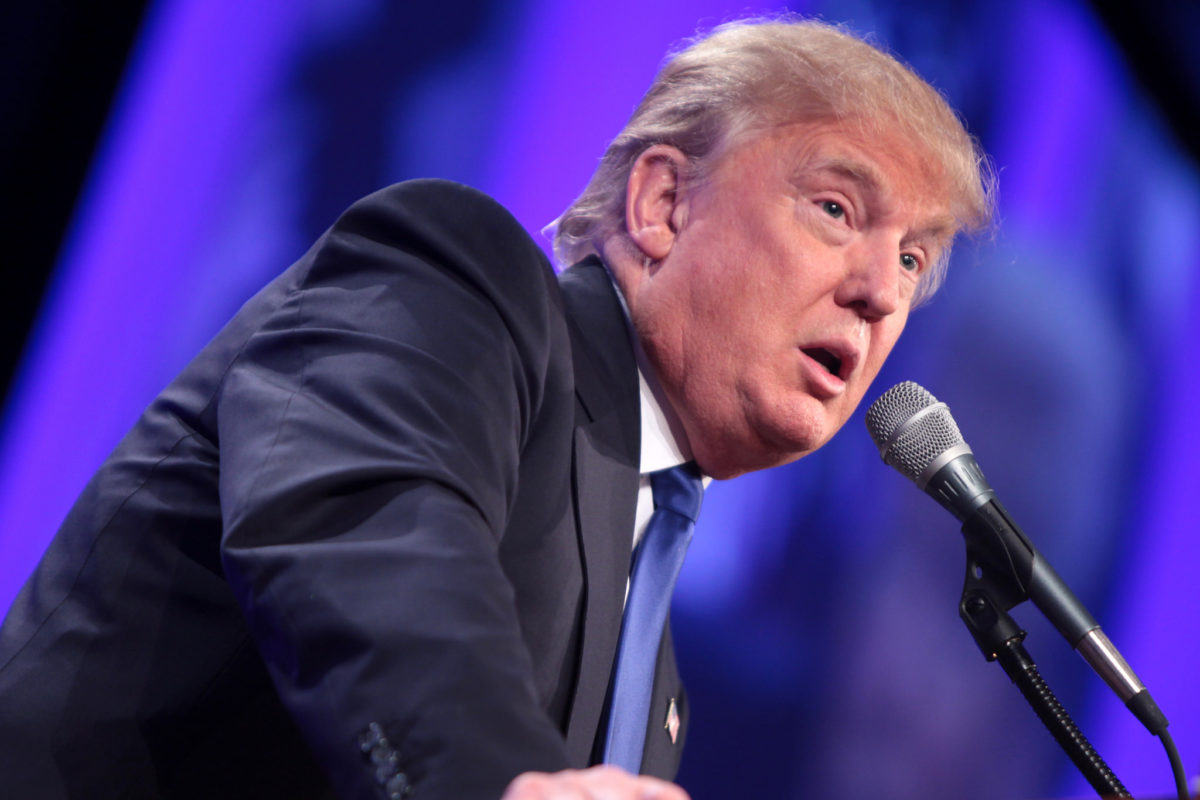
The Trump Administration in the US has set in motion plans to repeal the exemption for bifacial panels within Section 201 trade tariffs, while also raising tariffs to come into effect next year from 15% to 18% from next year.
The White House has also raised the prospect of extending measures beyond their existing four-year timeframe.
Try Premium for just $1
- Full premium access for the first month at only $1
- Converts to an annual rate after 30 days unless cancelled
- Cancel anytime during the trial period
Premium Benefits
- Expert industry analysis and interviews
- Digital access to PV Tech Power journal
- Exclusive event discounts
Or get the full Premium subscription right away
Or continue reading this article for free
The plans, laid out within a Presidential Proclamation issued over the weekend, will see the US Trade Representative (USTR) request the US International Trade Commission to conduct an investigation to determine whether or not existing measures remain satisfactory in protecting the domestic manufacture of solar products in the US.
Tariffs on panels under Section 201 had been scheduled to climbdown from 20% to 15% next year, following the annual downward revision since their introduction in 2018. The Section 201 tariffs started at 30% and have gradually degressed since their implementation, currently sitting at 20%.
President Donald Trump said that the exemption of bifacial panels had “impaired and is likely to continue to impair the effectiveness” of safeguard measures already in place. Furthermore, Trump said the exemption had prevented the effectiveness of the tariffs, and that the tariffs would need to increase in order to “achieve the full remedial effect envisaged”.
The tariffs were set to expire at the end of next year, however Trump’s latest move raises the prospect of either new measures being implemented or existing measures being extended.
The proclamation provides a 15-day window for any potential judicial challenge of the decision, however the bifacial exemption could be removed instantaneously after that window expires, meaning the import of bifacial panels into the US could be subject to trade tariffs as early as next month.
The increase in prospective trade tariffs from 15% to 18% would, however, come in from February of next year.
The proclamation comes just over three weeks before US citizens go to the polls in a presidential election that current polling suggests Trump looks set to lose. However, in an investor note issued earlier today, Roth Capital suggests that a safeguard extension could be implemented regardless of the election result.
Roth’s note suggests that even should Democrat hopeful Joe Biden win the US election on 3 November, an extension of the safeguard tariffs could be fast-tracked through. The USTR could request the ITC investigation within 10 days, prompting the ITC to return a report within three months suggesting a possible position to take. With the inauguration currently set to take place on 20 January 2021, it falls broadly in line with a conceivable timeframe.
In a statement issued to PV Tech, Abigail Ross Hopper, president and chief executive at the Solar Energy Industries Alliance (SEIA), said that the decision to increase the tariffs and consult on extending them further countered the “critical needs of our country right now”, and stood to jeopardise jobs and post-pandemic economic recovery.
Hopper also said aspects of the policy may also “run counter to law”.
“Since the administration imposed solar tariffs, we have fought to delay the termination of the bifacial solar panel exemption. And we have suggested many, more constructive, ways to expand American manufacturing, including targeted tax policy and suggestions for growing the whole solar supply chain in a way that would meaningfully create jobs and fuel the economy.
“In addition, we published a white paper with ideas for boosting the U.S. solar manufacturing economy. It should not be lost on policy makers that last year the solar industry had 35,000 manufacturing jobs as part of nearly 250,000 total jobs. These jobs are being jeopardized by COVID-19 and tariffs across the supply chain. We are going to consider every option to reverse this harmful approach. We also will be talking with leaders in the next administration, regardless of who is president, about the harm of solar tariffs in the context of the COVID pandemic, a threatened economy and a critical need to address climate change,” she said.






